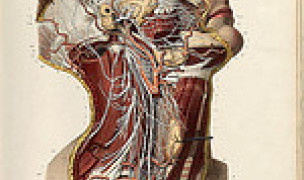 20 Terms
20 TermsHome > Terms > English (EN) > lawyers, television shows
lawyers, television shows
America in the late twentieth and early twenty-first centuries is known as an increasingly litigious society in which trials and verdicts are covered in news and gossip and via books by the participants, guilty or innocent. This coverage enshrines the lawyer celebrity who, while present in films, has been a particular staple of television drama.
If Dragnet is the type specimen for police shows, Perry Mason (CBS, 1957–66) is the type specimen for lawyers. Raymond Burr, who had appeared as a burly killer in Hitchcock’s Rear Window (1954), became an invincible lawyer whose clients, persecuted by the police, were invariably innocent. In a weekly morality play that has survived decades more in reruns, Perry, his sidekick private eye and love-struck secretary skated on the edges of the law in order to find the truth, while others confessed to adultery fraud, greed and ultimately the murder. Prosecutors lost although justice was served.
Mason’s heroics questioned the efficiency if not the motives of police (although Burr later played a wheelchair-bound cop in Ironside), setting the stage for important dramas discussing major issues like The Defenders (CBS, 1961–5) and many lesser shows. Yet, if these could tap into 1960s suspicion of police and government, lawyers, too, were found to be more human and more diverse than the white male heroes who created the genre.
L.A. Law (NBC, 1986–94), a widely watched ensemble show of the 1980s, for example, jumbled office politics, courtrooms and bedrooms. In the 1990s, David Kelley’s The Practice (ABC, 1997–) makes ethical issues central to a sometimes shady firm and beleaguered District Attorney’s office, while Ally McBeal (FOX, 1997–)—the first hit show named after a female lawyer—treats law as a career/lifestyle rather than a crusade for justice. Again, human vulnerability and moral ambiguity are seen as essences of the law rather than as external hindrances: justice is one goal among many. Law and Order (NBC, 1990–) offers perhaps the most clear-cut moral universe, with its concentration on prosecutors making deals and losing cases).
The fictional narratives of crime and punishment of the 1990s, however, intersect with other media realities equally vulnerable and ambiguous. Extensive coverage of the O.J. Simpson trial and presidential scandals, as well as wider access to C-Span and Court TV, have made the uncertainties of real justice part of everyday life. “Courttainment” in which “real” judges (Judge Wappner, former New York City mayor Ed Koch, Judge “Judy”) decide real civil cases with sitcom spiels also blurring the structures of authority and truth that seemed so clear decades before.
Just as crime and punishment have been crucibles of social change and cultural meanings, whether on-screen or off-screen, the integration of women and minorities as major characters in police and law dramas (judges, lawyers and detectives, as well as criminals), the growing violence of stories and depictions, and the humanization of lawyers have all reflected changing attitudes and prepared these changes.
- Part of Speech: noun
- Synonym(s):
- Blossary:
- Industry/Domain: Culture
- Category: American culture
- Company: Routledge
- Product:
- Acronym-Abbreviation:
Other Languages:
Member comments
Terms in the News
Billy Morgan
Sports; Snowboarding
The British snowboarder Billy Morgan has landed the sport’s first ever 1800 quadruple cork. The rider, who represented Great Britain in the 2014 Winter Olympics in Sochi, was in Livigno, Italy, when he achieved the man-oeuvre. It involves flipping four times, while body also spins with five complete rotations on a sideways or downward-facing axis. The trick ...
Marzieh Afkham
Broadcasting & receiving; News
Marzieh Afkham, who is the country’s first foreign ministry spokeswoman, will head a mission in east Asia, the state news agency reported. It is not clear to which country she will be posted as her appointment has yet to be announced officially. Afkham will only be the second female ambassador Iran has had. Under the last shah’s rule, Mehrangiz Dolatshahi, a ...
Weekly Packet
Language; Online services; Slang; Internet
Weekly Packet or "Paquete Semanal" as it is known in Cuba is a term used by Cubans to describe the information that is gathered from the internet outside of Cuba and saved onto hard drives to be transported into Cuba itself. Weekly Packets are then sold to Cuban's without internet access, allowing them to obtain information just days - and sometimes hours - after it ...
Asian Infrastructure Investment Bank (AIIB)
Banking; Investment banking
The Asian Infrastructure Investment Bank (AIIB) is an international financial institution established to address the need in Asia for infrastructure development. According to the Asian Development Bank, Asia needs $800 billion each year for roads, ports, power plants or other infrastructure projects before 2020. Originally proposed by China in 2013, a signing ...
Spartan
Online services; Internet
Spartan is the codename given to the new Microsoft Windows 10 browser that will replace Microsoft Windows Internet Explorer. The new browser will be built from the ground up and disregard any code from the IE platform. It has a new rendering engine that is built to be compatible with how the web is written today. The name Spartan is named after the ...
Featured Terms
pvr (personal video recorder)
A generic term for a device that is similar to a VCR but records television data in digital format as opposed to the VCR's analog format. PVRs have ...
Contributor
Featured blossaries
Browers Terms By Category
- Project management(431)
- Mergers & acquisitions(316)
- Human resources(287)
- Relocation(217)
- Marketing(207)
- Event planning(177)
Business services(2022) Terms
- General art history(577)
- Visual arts(575)
- Renaissance(22)
Art history(1174) Terms
- Cheese(628)
- Butter(185)
- Ice cream(118)
- Yoghurt(45)
- Milk(26)
- Cream products(11)
Dairy products(1013) Terms
- SSL certificates(48)
- Wireless telecommunications(3)
Wireless technologies(51) Terms
- Rice science(2869)
- Genetic engineering(2618)
- General agriculture(2596)
- Agricultural programs & laws(1482)
- Animal feed(538)
- Dairy science(179)





